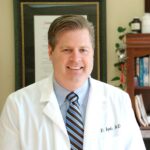Keys To Running A Successful Naturopathic Specialty Practice
By Darin Ingels, ND
I should qualify the title of this article by stating that I had never intended to be a specialist in my practice. Like most of use when we graduate naturopathic medical school, we feel prepared to go out and tackle to myriad of maladies that plague most primary care offices. I started my practice as a general naturopathic doctor, working with children and adults to help treat their asthma, eczema, hypertension, hyperlipidemia, insomnia, anxiety or whatever other problem seemed to present itself. As part of my practice, I had always utilized immunotherapy as one of my primary treatment modalities to help deal with various allergies to foods, mold, pollen, dust, etc. I found that the longer I had been in practice, patients began seeking me out specifically for this treatment. As a result, my practice quickly became centered on seasonal allergies, asthma, eczema, autism and other conditions directly related to immune dysfunction and hypersensitivity. So I became a specialist without intending to become as such. Whether you intend on becoming a specialist in your area of expertise or it finds you, here are a few things I learned along the way that I think will help your practice be successful.
Our Practice Model
The way you set up your practice model can have a significant impact on the operation and ultimately, the financial success of your practice. It is important that you closely examine how your model works with the current state in which you practice and understanding any limitations in your scope of practice. Our practice is a fee for service practice and we do not participate with any insurance company. Patients pay at the time of service and then a superbill is generated that patients may submit for out-of-network reimbursement if they have a plan with out-of-network benefits. We are fortunate in our location that most of our patients have insurance plans with out-of-network benefits and do get reimbursed for our services. Our staff is trained to help assist patients with their claims once they have been submitted if they get rejected and often we are able to help correct clerical errors that occurred during the original processing and get patients their due reimbursement.
Our office consists of two naturopathic physicians. In the past we have also had a medical doctor and an acupuncturist. Having multiple practitioners in the office allows you to potentially offer more services to your patients, develops a good cross referral network and a team approach to healthcare. The key in an integrated clinic is to utilize each other’s strengths and allow patients to work with the provider that will best suit their health needs at the time.
I found early in my practice that just being at the clinic was important, even when my patient load was low. Patients feel comforted knowing their doctor is available and accessible. Set regular hours and then be there during those hours. We work five days a week, including one night and Saturdays. Since we work with a lot of children, we found that providing times that did not conflict with work or school was a good practice builder. It is important to know your patient population and find out when patients are most likely to come into the clinic. However, it is equally important to maintain reasonable hours and not overextend yourself. If a patient truly values you and what you do, they will find a way to see you when you are available.
To Participate Or Not To Participate With Insurance
If you practice or are considering practicing in a licensed state, you have no doubt entertained the idea of becoming a participating provider with insurance companies. There are many pros and cons of both sides of participation and ultimately you have to decide what is in the better interest of your practice. You may find that your choice is limited depending on the state in which you practice. While Washington state is agreeable to naturopathic physicians and many naturopaths are participating providers and primary care physicians there, many insurers in Connecticut will not credential naturopathic physicians unless you are part of a practice that includes an MD, even though we are also considered primary care physicians. If you decide to participate with insurance, then please check with practicing ND’s in the state in which you would like to practice and find out what the process entails and if the insurers are openly enrolling new ND’s.
One of the considerations of becoming a participating provider, especially if you are going to operate as a specialty practice, is whether the modalities you offer are part of the generalized standard of care. Some modalities that are clinically beneficial may not be considered as such by an insurance company and you may therefore be subject to an audit if you are a participating provider. This could result in having to pay them back for services rendered that they don’t consider necessary or possible termination of your contract. Services such as IV nutritional therapy, prolotherapy and craniosacral therapy to name a few, are useful modalities that some insurance companies may deem as not part of the standard of care and will therefore not reimburse for these services. I’m not implying that insurance companies never pay for these services, but rather issuing a warning that you need to be aware of which services are reimbursable and which ones are not as you plan ahead for your practice.
My choice when I started my practice in Connecticut was to not participate with insurance companies. At the time, most insurers would not credential me as a solo provider and it didn’t make sense to me to only participate with one or two insurance companies anyway. I knew that many patients were getting reimbursed for our services out-of-network, so I planned to give patients receipts that they could turn around and submit for reimbursement. Although my practice did not grow as fast as some of my colleagues who were participating providers, I am ultimately happy with that decision and not having to practice under the thumb of an insurance company.
Building A Specialty Practice
If you intend to be a specialist or have already gone through specialty training, the first step is to let people know you exist. Having a solid marketing strategy to get your name out in the community is important in building your practice. You can be as elaborate or as simple as you like, depending on your budget and resources. Some naturopathic doctors have hired marketing firms to help promote their businesses, while others do the work themselves. A lot of marketing can be done with little to no cost to you, including free local talks, health fairs or meeting another practitioner for lunch. Dr. Peter Bongiorno in New York City told me that 99% of the talks and lectures he gives do not lead to new patients coming to his practice. But the 1% does. I agree with Dr. Bongiorno and my experience has been similar. Until you reach a critical mass in your practice where word-of-mouth referrals sustain your practice, we are all dependent on getting the word out about whom we are and what we do. Marketing takes time, so you should plan your schedule accordingly to allow for this critical time to prepare lectures, handouts or whatever media you use to promote your business. Social media such as Facebook, Twitter, LinkedIn and Yelp are other easy ways to get your name out there to the public.
Building a specialty practice also means developing a relationship with other like-minded providers. These providers may be ND’s, MD’s, LAc’s, NP’s or any other health provider who might become a feeder for you. Having a collaborative relationship with other health providers where you are not direct competition can help build referrals. I have found that health providers who see me as competition will not generally refer to me, so I don’t spend time trying to convince them otherwise. Focus on those who will become a long-term referral source. And remember, this goes both ways. They are likely also looking for referrals, so make to sure to utilize their strengths and send the referral when appropriate.
Case Study
A 5-year-old autistic boy (J.T.) was referred by a homeopath for evaluation of food allergies and other environmental sensitivities. He showed signs of developmental delay at 15 months, with speech delay, poor eye contact, repetitive behaviors and aggression. He had been seen by another MD and was started on GFCF diet, Methyl B12 injections, transdermal chelation, HBOT and many nutritional supplements. He had some mild improvement in expressive language after the MB12 injections. At the time I first saw J.T., he still had significant language delay, poor eye contact and aggressive behavior. He was seen in my office for history, physical and evaluation of food allergies and was found to be sensitive to several foods and three food phenolic compounds. He was started on an elimination diet, sublingual immunotherapy for his food sensitivities and a few nutritional supplements.
I saw J.T. five weeks later and his mother reported that he was calmer and he had slight improvement in his expressive language. Mom also noted that his ears were less red and his pupils were less dilated (did not mention this at initial visit). His therapists are reporting that he is easier to work with and is learning faster. I rechecked his food sensitivities and he can now tolerate a higher dose of is sublingual immunotherapy, so the dose is increased.
At 9 weeks after the initial consult, J.T. has significantly improved receptive and expressive language. He is more affectionate with his sister and parents. He is very calm now and does not have outbursts as before. He is physically healthy. I rechecked his food sensitivities again and he can tolerate a higher dose of his sublingual immunotherapy again.
I continued to see J.T. for monthly visits and after 7 months, his food sensitivities resolved and he went back to eating all foods on a rotation diet. His language continued to improve as well as his behavior. He became more social with family and peers and was physically doing well, other than a rare cold. I have continued to work with J.T. for the past 5 years. He is now 10 years old and in mainstream school with an aide. He is doing well and his parents are pleased with his continued progress.
 Darin Ingels, ND, is a respected leader in natural medicine, with numerous publications, international lectures, and more than 20 years of experience in the healthcare field. He received his Bachelor of Science degree in medical technology from Purdue University and his Doctorate of Naturopathic Medicine from Bastyr University in Seattle, Washington. Dr Ingels completed a residency program at the Bastyr Center for Natural Health. He is currently licensed in the States of Connecticut and California, where he maintains practices in both states. Dr Ingels is a member of the AANP, PedANP, CNPA, NYANP, CNDA, AAEM, and ACAM. His practice focuses on environmental medicine with special emphasis on chronic immune dysfunction, including allergies, asthma, recurrent infections, and other genetic or acquired immune problems. He uses diet, nutrients, herbs, homeopathy, and immunotherapy to help his patients achieve better health.
Darin Ingels, ND, is a respected leader in natural medicine, with numerous publications, international lectures, and more than 20 years of experience in the healthcare field. He received his Bachelor of Science degree in medical technology from Purdue University and his Doctorate of Naturopathic Medicine from Bastyr University in Seattle, Washington. Dr Ingels completed a residency program at the Bastyr Center for Natural Health. He is currently licensed in the States of Connecticut and California, where he maintains practices in both states. Dr Ingels is a member of the AANP, PedANP, CNPA, NYANP, CNDA, AAEM, and ACAM. His practice focuses on environmental medicine with special emphasis on chronic immune dysfunction, including allergies, asthma, recurrent infections, and other genetic or acquired immune problems. He uses diet, nutrients, herbs, homeopathy, and immunotherapy to help his patients achieve better health.









